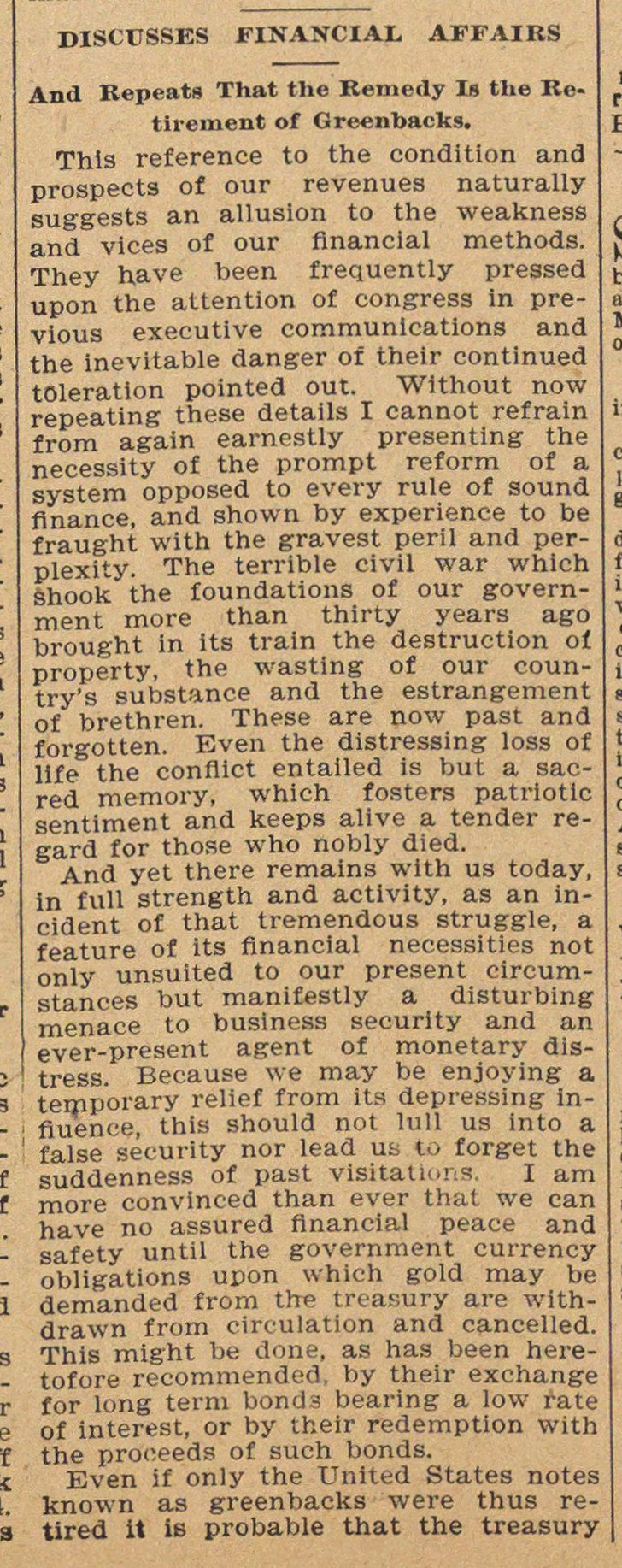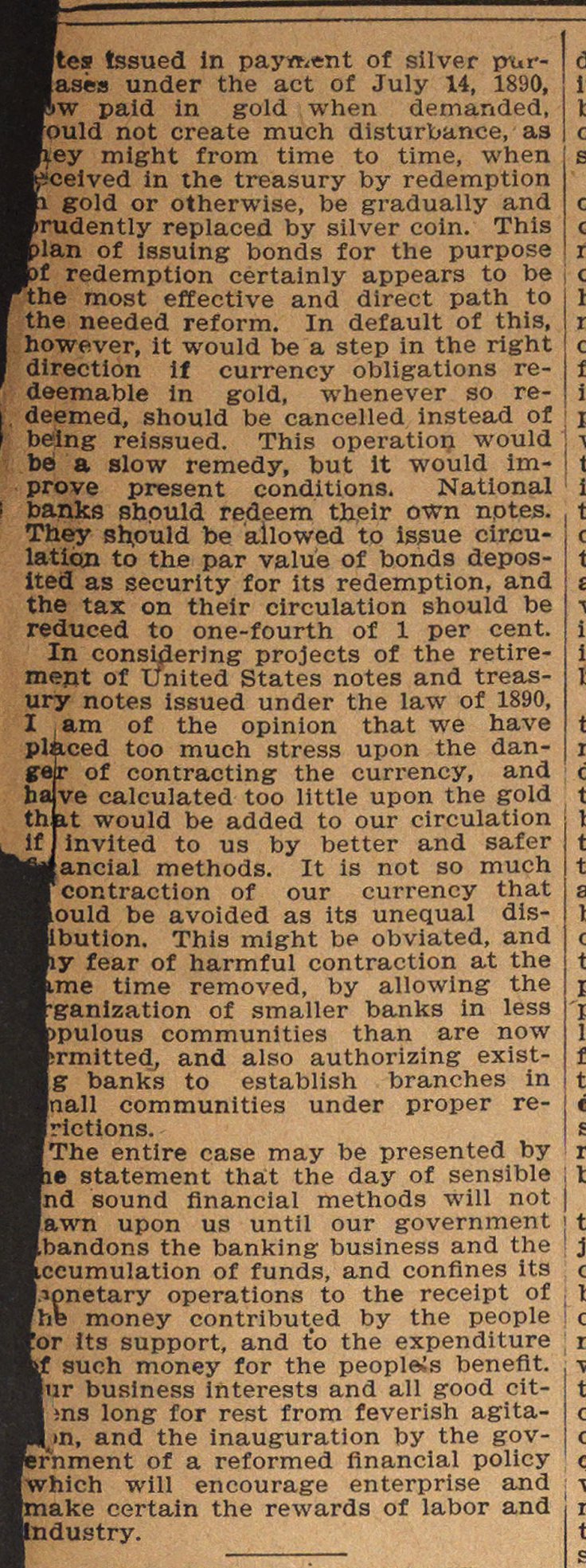Discusses Financial Affairs


This reference to the condition and prospecta of our revenues naturally suggests an allusion to the weakness and vices of our financlal methods. They have been frequently pressed upon the attention of congress in previous executive Communications and the inevitable danger of their continued töleration pointed out. Without now repeating these details I cannot refrain from again eamestly presenting the necessity of the prompt reform of a system opposed to every rule of sound fï nance, and shown by experience to be fraught with the gravest peril and perplexity. The terrible civil war which shook the foundations of our government more than thirty years ago brought in its train the destruction of property, the vasting of our country's substance and the estrangement of brethren. These are now past and forgotten. Even the distressing loss of life the conflict entailed is but a sacred memory, which fosters patriotic sentiment and keeps alive a tender regard for those who nobly died. And yet there remains with us today, in full strength and activity, as an incident of that tremendous struggle, a feature of its financial necessities not only unsuited to our present circumstances but manifestly a disturbing menace to business security and an ever-present agent of monetary dis1 tress Because we may be enjoying a temporary relief from its depressing infiuence, this should not lull us into a 1 false security nor lead us to forget the suddenness of past visitatlons. I ara more convinced than ever that we can have no assured flnancial peace and safety until the government currency obligations upon which gold may be demanded from the treasury are withdrawn from circulation and cancelled. This might be done, as has been heretofore recommended, by their exchange for long term bonds bearing a low rate of interest, or by their redemption with the procïeeds of such bonds. Even if only the United States notes known as greenbacks were thus retired it ie probable that the treasury Htcs tssued In payïit of silver pnur■ases under the act of July 14, 18S0, Hlw paid in gold when demanded, ■ould not créate much disturbance, aa Mey might from time to time, when Riceived In the treasury by redemption In gold or otherwise, be gradually and ■rudently replaced by silver coin. This ■lan of issuing bonds for the purpose ïf redemption certainly appears to be Bthe most effective and direct path to the needed reform. In default of this, however, it would be a step in the right direction if currency obligations redoemable in gold, w-henever so redeemed, should be caneelled instead of being reissued. This operation would ; bé a slow remedy, but it would 1 prove present conditions. National banks should redeem their own nptes. They shpuld be allowed to issue , latlcn to the par valu'e of bonds j lted as security for lts redemption, and the tax on their circulation should be reduced to one-fourth of 1 per cent. In considering projects of the retiremept of United States notes and treasury notes issued under the law of 1890, I ,am of the opinión that we have placed too much stress upon the dangek of contracting the currency, and bave calculated too little upon the gold thkt would be added to our circulation iflinvited to us by better and safer Hjjancial methods. It is not so much ■ contraction of our currency that ■ould be avoided as its unequal dis■ibution. This might be obviated, and Biy fear of harmful contraction at the ■ime time removed, by allowing the ■ganlzation of smaller banks in less Bpulous communities than are now rmitted, and also authorizing exist■ g banks to establish branches in ■nall communities under proper re■rictions. ■ The entire case may be presented by ■ie statement that the day of sensible ; ■nd sound flnancial methods will not ■awn upon us until our government i Hbandons the banking business and the Kccumulation of funds, and confines its ■.ipnetary operations to the receipt of ; ■ he money contributed by the people ■or its support, and t'o the expenditure Bf such money for the peopleis benefit. lur business interests and all good cit■ ;ns long for rest from feverish agitaH m, and the inauguration by the govlerhment of a reformed financial policy [which will encourage enterprise and Imake certain the rewards of labor and ■ndustry.
Article
Subjects
Ann Arbor Argus
Old News